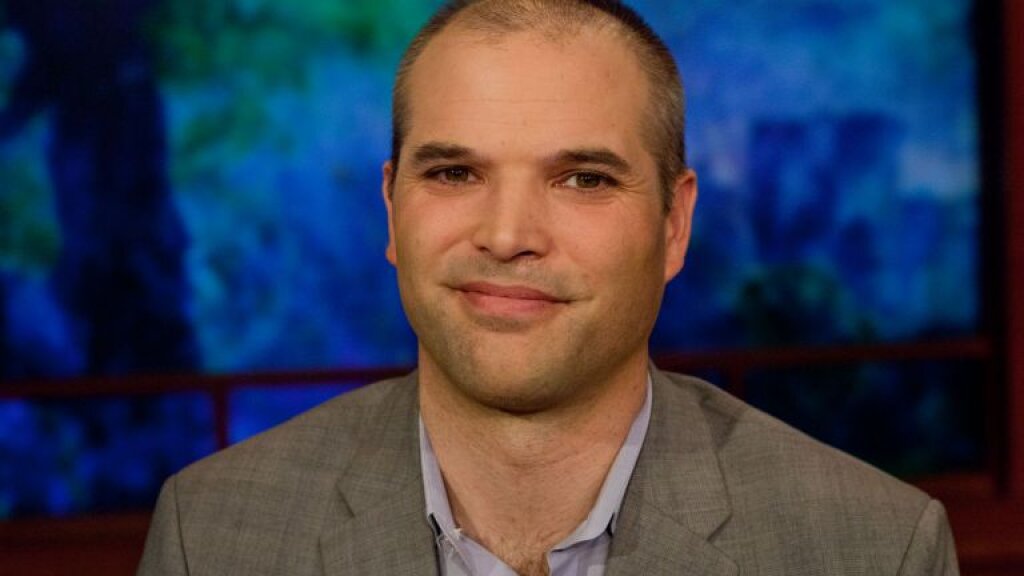The only thing gratifying about this weekend’s uproar over Matt Taibbi’s Moscow days is that Russianists were twenty years ahead of this particular news cycle. Apparently, scandal is a renewable resource.
On October 27, Aimee Levitt published a piece in The Chicago Reader with the apt title “Twenty years ago, in Moscow, Matt Taibbi was a misogynist asshole—and possible worse.” Taibbi and Mark Ames were co-editors of the the English language gonzo, semi-satirical, semi-muckraking expat newspaper the eXile, where they engaged in sophomoric pranks, non-stop partying, and, if their own words are to believed, constant sexual harassment.
This was a story that was hiding in plain sight, or at least, in the used book section of Amazon, since Taibbi and Ames told their tale in their 2000 book The eXile: Sex, Drugs, and Libel in the New Russia. Say what you will, but Ames and Taibbi cannot be faulted for false advertising: the book chronicles their drug-fueled adventures (cocaine and speed for Ames, heroin for Taibbi) as they basically trolled the Russian government, the Moscow expat community, and especially Russian-based foreign correspondents.
Send forth the worst ye breed
While living in Moscow in the late 1990s, I read the eXile frequently, though I reassured myself that I wasn’t really part of the target audience. Russian-speaking academics did not think of themselves as “expats,” and I steered clear of a community that made me embarrassed to be an American: opportunistic, egomaniacal young men who looked at Moscow as a place to get rich while—how should I put this delicately?—dating out of their league. Their behavior was a perfect illustration of the anxieties I found in contemporary Russian culture: the fear that all of Russia’s natural resources, from oil to minerals to “the most beautiful women in the world,” were being plundered by a rapacious West.
The eXile cultivated the gonzo sensibility of its founders’ hero, Hunter S. Thompson, but filtered through an ethos that was thoroughly fratboy. Its strange combination of incisive political commentary, laugh-out-loud satire, and vile misogyny made me reluctant to admit that I read it. It gave me a feeling I identify with my teenage years, back when I used to visit a store that carried science fiction, comic books, and porn: one-stop shopping for shame.
Ames and Taibbi were vicious about the pieties of English-languge journalism, holding an annual competition for the worst article of the year (poor Helen Womack was a frequent winner). But their best work targeted the sensationalistic, crime-besotted post-Soviet media. They had a regular overview of Russian crime reporting called “Death Porn,” with a set of symbols providing an easy shorthand to the most common tropes: a waffle for “riddled with bullets,” a screaming woman for “cries for help ignored,” and a butterball for “carved up like a turkey.” “Death Porn” helped me clarify my own thinking on post-Soviet discursive violence when I was writing my own book, Overkill.
Assholes Abroad
Though Levitt’s Chicago Reader article contained nothing I didn’t know, I will be forever grateful to her for introducing the word “asshole” into the Taibbi conversation, so that I don’t have to be the first.
“Asshole" is not just a slur; in the hands of philosopher Aaron James, author of Assholes: A Theory (2012) and its timely follow-up Assholes: A Theory of Donald Trump (2016), it is a term of art.
According to James, an asshole:
(1) allows himself to enjoy special advantages and does so systematically;
(2) does this out of an entrenched sense of entitlement; and
(3) is immunized by his sense of entitlement against the complaints of other people.
James probably never read the eXile, but he nonetheless describes the persona cultivated by both Ames and Taibbi during their eXile days. Like the clueless expats they loathed, the editors treated Moscow and its residents as their playground.
Taibbi’s defense of his co-authored non-fiction book about the newspaper is that the stories it contained were, in fact, fiction. From a legal or ethical point of view, this distinction is crucial. But if we think of it in terms of James’s asshole framework, it is less relevant. It is entirely possible that Taibbi’s and Ames’s stories of demanding blowjobs from female staffers are fratboy braggadocio. In fact, I hope they are. But the fact remains that this was an image they wanted to cultivate. Tabbi wasn’t just an asshole; he was an asshole wannabe.
The Weinstein Effect
When it comes to Taibbi, Russianists have been experiencing a slow-motion shock of an entirely different kind: the gradual discovery over the past decade that Taibbi has somehow matured into one of the most acerbic and valuable commenters on the American political scene. How can this be the same man?
Even beyond our tiny community, this is old news. Tabbi’s thirtysomething misogyny and assholish demeanor are a matter of public record. Even the Chicago Reader covered some of this ground in a review of the eXile book in 2000 ), while James Verini’s 2010 Vanity Fair profile of Taibbi even includes Taibbi’s lobbing of hot coffee at the article’s author.
So why are we talking about this now? Obviously, the revelations about Harvey Weinstein and the “me, too” campaign have opened the floodgates. In that respect, the release of Taibbi’s latest book could not be timed worse. Nor should we ignore the glee with which the rightwing media has taken up this story, in the hope of discrediting one of the most compelling anti-Trump voices in American print media.
But Taibbi has only himself to blame (and not just because his permanent smirk gives him one of the most punchable faces in contemporary journalism). He has tried to foist the responsibility onto his equally unsavory co-author/frenemy, Mark Ames, but, in the end, it doesn’t matter who wrote the words. What matters is who was only too happy to claim credit for them. Who was perfectly comfortable putting his name on the masthead of a paper whose nightclub reviews ranked venues according to the “rapability” of the “devs” (girls).
Taibbi’s apology is a beginning, but it does not go far enough:
While the events described are not a biographical reality, this is not to say I don’t have regrets about the eXile, which was conceived as a giant satire, whose purpose was to be an ongoing embarrassment to the expatriates who came to Russia to spread the American way. In my younger mind this sounded like a good idea, a cross of Andrew Dice Clay, The Ugly American and Charlie Hebdo. But in practice it was often stupid, cruel, gratuitous, and mean-spirited. I regret many editorial decisions that I made back then, and putting my name as a co-author on a book that used cruel and misogynistic language to describe many people and women in particular. I hope readers can forgive my poor judgment at that time.
Taibbi wants to preserve a hygienic distance from the worst of the eXile, but this simply doesn’t jibe with some of the pieces published under his own byline. Look no further than this 1999 screed about ugly Western feminists’ jealousy of hot Russian women. Entitled “Of hacks and whores,” Taibbi’s takedown of a Western female journalist says her article "oozed such obvious bitterness and desperation that it might as well have been a perpetually unanswered personal ad in the back of Sagging Breast Weekly.” He continues:
The fact is, Russian women--with their tight skirts, blowjob-ready lips, and swinging, meaty chests--scare the hell out of Western women. They know that if large numbers of them were ever to invade the placid, polite, lesbian-literature-and-designer-coffee dating scene of their home countries, they'd be priced right out of the market.
The most persuasive line in this particular article is also its first, but only when it is read as inadvertent self-criticism:
You know how suicide attempts, particularly the botched ones, are sometimes called "cries for help"? Well, the same holds true for news articles. Sometimes, a reporter's intention isn't really to convey the news. Instead, he's sending out a personal distress call […]
Taibbi did not realize it, but he was tearing down his own career even as he built it. This may have been a cry for help, but, like the proverbial cries for help in the eXile’s “Death Porn” section, was ignored. In this case, by its own author.
Nearly twenty years later, I am choosing to hear that cry. So allow me to propose the apology he should have made (and still can):
Yes, I was a real asshole in my twenties and thirties. I was an adult, and old enough to know better. I am not claiming that “things were different back in my day.” The eXile: Sex, Drugs, and Libel in the New Russia was published in the same year that Gloria Steinem turned 68; everything people are complaining about now was reprehensible then. In my writing, I treated women as commodities who should only be too happy to be exploited by men like me. The overall tone of the book is accurate, but some of the worst parts are exaggeration for effect; that is, I actively chose to make myself look like even more of an asshole than I was. I was also strung out on heroin all those years, though that does not excuse me. I deeply regret how I behaved, and have tried to be a better person since then, particularly in my interactions with women.
As a dedicated reader of Taibbi’s recent work, I hope this is all true. But perhaps, inadvertently, Taibbi has done us (though not his former subordinates) a favor by confronting us with such a complicated case. Weinstein’s story is straightforward—really, he is an ugly caricature of male harassment, but one that turns out to be real. But with Taibbi, where there aren't (yet) specific women accusing him of specific acts, and where there isn't (yet) anything recent, if someone in his position were to be truly contrite, condemn his behavior, say he's changed, and then endeavor to prove that he has, what is the proper response?
I intend to go on reading Taibbi for years to come. I just wish I could find a way to do it without feeling complicit in his hypocrisy.




